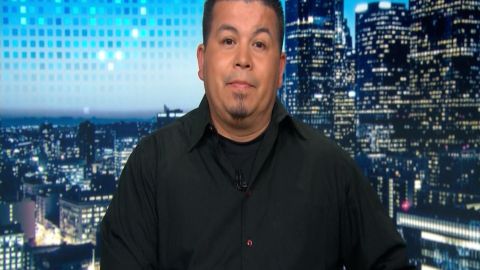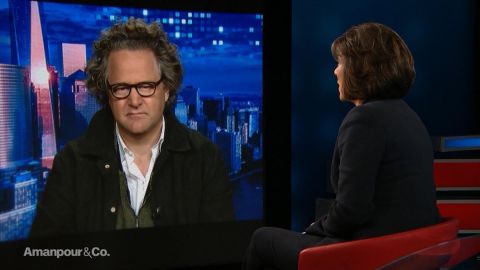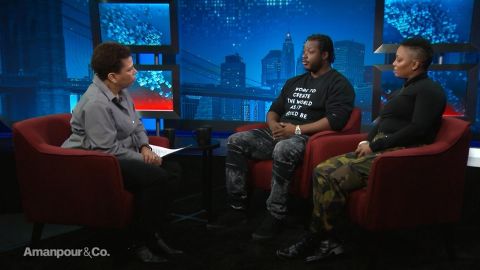Read Transcript EXPAND
AFUA HIRSCH: It’s a difficult climate. We have got a surge in protests. I think tensions are extremely high and the stakes are getting higher the closer we’re getting to the date that we’re meant to be withdrawing from the E.U. It’s very difficult to draw a line between legitimate protest, which is something that we value as a constitutional principle, part about parliamentary democracy and which can be annoying, like the bells we had behind Rory Stewart to the other side of that order which is aggressive behavior designed to intimidate, scare, even attack people carrying out their democratic duty as M.P.s. and those of us in public as well who have vocal views that also appear in the media. And I think —
CHRISTIANE AMANPOUR: Such as yourself.
HIRSCH: And I have also — I mean, not a day goes by when I’m not the target of hate, some of it is violence and threatening. And actually, what I fear is that this has become so normalized in the past two years that we rarely speak about it, I rarely report people to the police because it’s so frequent. And I think there was a change this week because that kind of behavior, which has been happening to many commentators, which has been happening to many Black M.P.s, David Lammy, Diane Abbott, among those who have had horrifically violent messages. Now, that it’s happened to somebody who’s a well-known member of the conservative party —
AMANPOUR: So, let’s just say who it is. It’s Anna Soubry.
HIRSCH: Anna Soubry.
AMANPOUR: We’ve got the pictures. She’s the M.P. She’s a Remainer.
HIRSCH: She’s a Remainer and also a moderate voice in the Conservative party. She was surrounded by extremely violent threatening people who call themselves protesters but I would say more were fog-ish intimidators, on her way into Parliament. And I think for many people, that image really took them over the line and made them realize the state of things in the society that hostile behavior has become part of daily life and it cannot be tolerated.
AMANPOUR: OK. So, let’s just broaden that out before we get back into the sort of specifics of the Brexit in due social sort of dysfunction in this country right now. You have this kind of tribalized, highly politicized debates, which are not debates, they are, as we’ve just described, either insults, intimidation, bells, whatever, trying to shut down debate rather than having a debate, but it’s not just here it’s in the United States as well. We’re in the midst of a government shutdown there. Do you see the parallels?
HIRSCH: Oh, absolutely. These are cultural phenomena. And Brexit is actually very complicated process, the debates going on in parliament are complex but that’s not what we’re seeing reflected in these movements. This is actually — these are much broader existential questions about identity, who gets to be British, what our vision for the future of the country is. If you look at the people who are surrounding Anna Soubry, they are people who have been publicly calling for Muslims to be deported, for us to take the land back coded for removing people of color from England you have the sense that, “If you look like me, you are not a legitimate British person regardless of your legal status whether you were born here, whether you’re second or third generation.”
About This Episode EXPAND
Christiane Amanpour speaks with furloughed Fire Captain Mark Munoz; British Justice Minister Rory Stewart; author Afua Hirsch; and director Florian Henckel von Donnersmarck. Michel Martin speaks with Baltimore Police Officer Monique Brown & Alex Long about “Charm City.”
LEARN MORE



